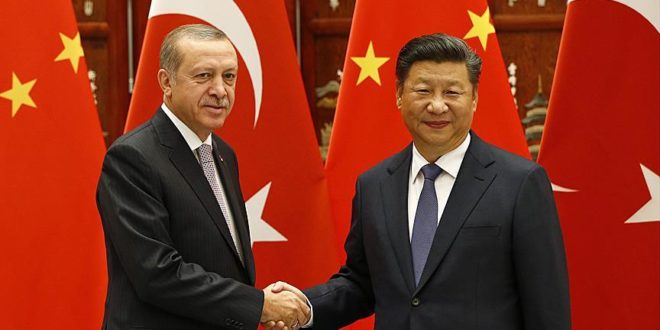By Sam Mak •
What message was Trump sending to Erdogan a week ahead of Turkish president’s planned visit to Washington by approving the arming of Kurdish forces in Syria?
While the visit to Washington comes shortly after Erdogan’s been granted sweeping new presidential powers in the April referendum, he has little to celebrate or look forward to on either domestic or foreign fronts.
Last Tuesday, White House spokesman Sean Spicer said that President Trump has approved the plan to supply Kurdish fighters in Syria with weapons “as necessary to ensure a clear victory” as they are closing in on the largest and most important Daesh stronghold in Syria ― Raqqa.
According to the plan, Washington was to provide ammunition, small arms, machine guns, construction equipment and armored vehicles to the Kurdish Syrian Democratic Forces. From the American perspective, this decision is more than justified as the Kurdish YPG forces are the key US ally in Northern Syria in the anti-Daesh fight. But Turkey has a diametrically opposed view on the Kurds, and considers YPG the extended arm of the Turkish PKK – both of whom are designated terrorist organizations in Turkey.
Moreover, Turkey fears that the US support for the Kurds in Syria will lead to the establishment of the Kurdish state, along its southern border with the beleguered Arab neighbor, and that it’s only a matter of time afterwards, when a similar Kurdish enclave or autonomy will be created on its own territory. The American supplying of weapons to Kurdish militias in Syria perhaps feels like stirring up the hornet’s nest for Turkish president.
His relationship with the US is strained because of the last year’s failed coup and the US refusal to hand over his archenemy ― Fetullah Gulen ― whom he accuses of orchestrating the coup. On the other hand, Erdogan is trying to strengthen his ties with Russia and China, but neither these two have too much trust in him, due to his support for the terrorists in Syria, and his erratic moves in both domestic and foreign policy.
Ahead of his Tuesday visit to Washington, Erdogan is not in an easy position. Whatever concessions he hopes to negotiate with the US president about the Kurds or Gulen are unlikely to be successful. Indeed, Erdogan is currently finding himself between a rock and a hard place.
Things at home are not boding well either, and if American policy is following the standard pattern of the past three decades or so, neither Turkey nor Erdogan himself should expect much good news in the future. One possible scenario could be using Kurds to get rid of Erdogan, as he has become too much of a liability ― not only for the US but also in Turkish domestic politics, and not a single Arab neighbor would be sorry to see him gone and replaced by a more reliable president.
The question is whether Erdogan will use this chance to read Trump’s intentions towards him personally and the future US policy towards Turkish state. And based on what he reads decide he has only one option left – breaking up with the US, and the NATO and joining the emerging Eurasian block led by China and Russia. Erdogan’s comments following just concluded “One Belt, One Road” Summit in Beijing signal his weighing up moving in that direction.
If so happens, what reaction would such move by Erdogan, who along with Russia and Iran is a guarantor of the recently signed agreement on safe zones and ceasefire in Syria, trigger from the US and the NATO? And what would Turkish possible move towards joining Eurasian security and economic block mean for the future of the greater Middle East?
Finally, the only thing less predictable than Erdogan’s next move, upon return from Washington, is perhaps only Trump’s own game in the Middle East. More or less wars – that is the question.
 Geostrategic Media Political Commentary, Analysis, Security, Defense
Geostrategic Media Political Commentary, Analysis, Security, Defense





